Exploring Contradictions beyond Contradiction
1st International Conference on Contradiction Studies
University of Bremen | February 11–14, 2025
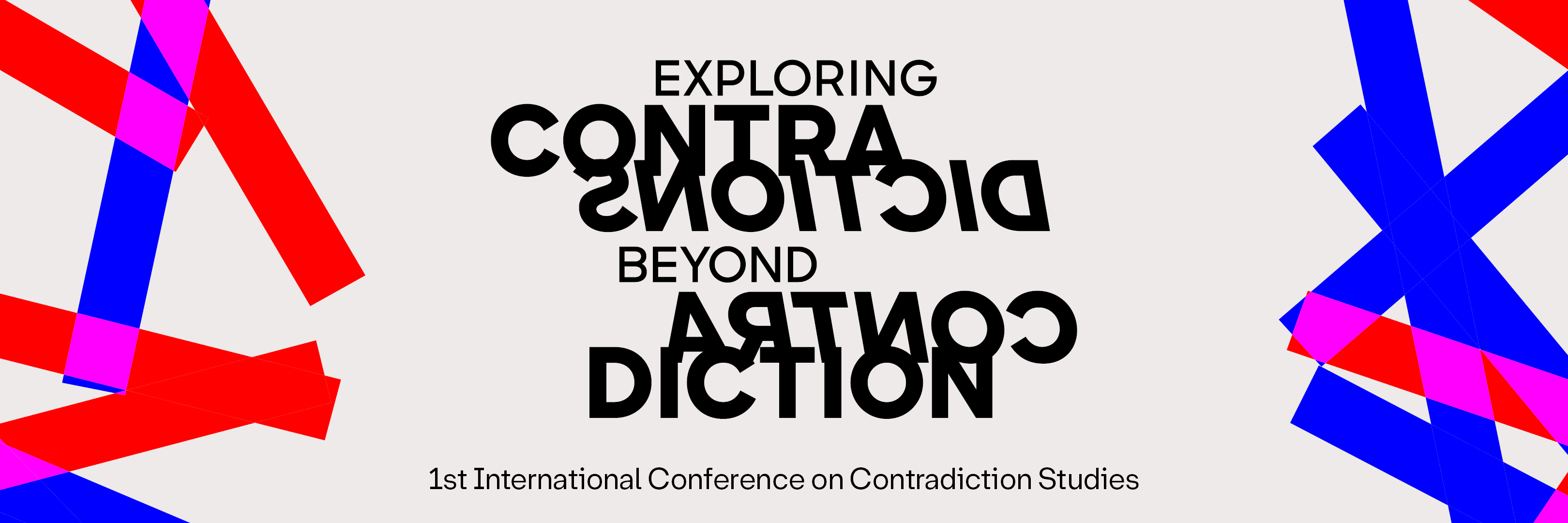
Contradictions are omnipresent and the identification of contradictions is usually accompanied by the imperative to resolve them. Contradictions can be ascribed to individual actions as well as to social formations. They extend to all areas of life: political orders, academic settings, religious practices and many more fields that are permeated by them. Without contradictions, there are no pluralities and no truths. Nevertheless, there is a long and powerful (especially European) tradition of problematizing and resolving contradictions and reducing them to logical incompatibility. This tradition of avoiding contradiction is countered by alternative concepts of thinking contradiction, above all in dialectics or paraconsistent logic (Priest/Tanaka [1996]2022). Contradiction Studies take up this reflection and move away from the widespread negative assessment of contradiction (cp. Febel/Knopf/Nonhoff 2023; Lienert 2019; Lossau/Schmidt-Brücken/Warnke 2019; Nintemann/Stroh 2022; Warnke/Hornidge/Schattenberg 2021). In this sense, our conference aims to explore contradictions beyond contradiction.
Concept
Contradiction Studies questions the primacy of consistency without contradiction and the imperative of overcoming contradictions and in doing so focus on the everyday omnipresence of contradictions, their inevitability and ambiguity, their effects and the ways in which contradictions are dealt with. Contradiction Studies, as a new internationally and interdisciplinary oriented field of research, thus rethink the complex topic of contradiction by focusing on living in and with contradictions. Of particular interest are the epistemic preconditions of concepts of contradiction, their formation, negotiations, and the explanatory limits of contradiction.
The 1st International Conference on Contradiction Studies at the University of Bremen picks up this approach of inquiring contradictions, and interrogates and discusses constellations of contradiction, modes of resolving contradiction, everyday contradictions, and practices of contradiction in a multi- and interdisciplinary setting. We are also interested in the historization and provincialization of contradiction, enabling post- and decolonial discussions on how to open up, decenter and question contradiction as an ordering practice. Both theoretical contributions and the discussion of empirical approaches and results are welcome.
Program & Book of Abstracts
(Latest update: February 10, 2025)
he conference features a combination of plenary lectures and panels. Panels are organized as Special Panels (SP #1–6), General Panels (GP #1–8), and General Cross Panels #1–4.
- Special Panels are structured and moderated by the section submitters.
- General Panels feature three 20-minute presentations, followed by a 45-minute moderated discussion.
- General Cross Panels feature two to three 20-minute presentations, each followed by 15-minute discussions.
The conference language is English but individual presentations or panels in German are possible.
If you have any questions, please contact the conference team (ecbc2025@uni-bremen.de) or the scientific coordinator, Dr. Christian Bär. For information on the venues and directions, please visit the Information section.
Information
Venues & Directions
Most events will take place at the University of Bremen Campus.
| Location | ||
| University of Bremen, Bibliothekstraße 1, 28359 Bremen Campus adress: GW2, Universitäts-Boulevard 11/13 | HS, Universitäts-Boulevard 15 28359 Bremen |
For participants arriving by plane or train, the easiest route is via tram line 6 (direction: “Universität- Nord”). Stops are conveniently located at both the airport and the train station. Disembark at the stop (H) “Universität / Zentralbereich”.
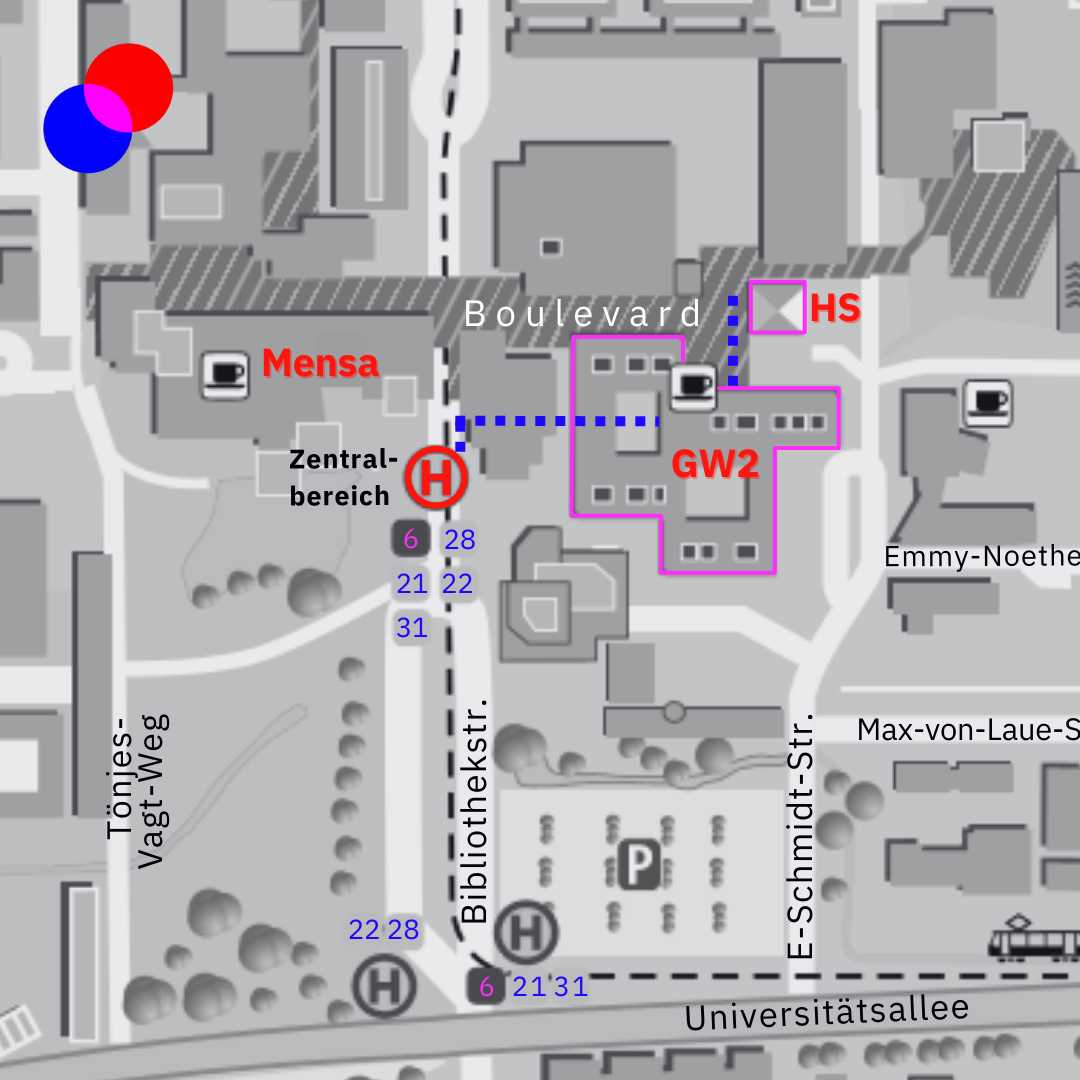
For more details see:
| Campus Venues | ||
| University of Bremen —Universitäts-Boulevard 11/13 & 15 | ||
| HS (Hörsaalgebäude) | ||
| —HS 1010 | Welcome | |
| Keynote adresses | ||
| Closing | ||
| GW2 (Geisteswissenschaften 2) | ||
| —GW2 B2.880 | Registration & Conference desk | |
| —GW2 B3.009 | Special panels | |
| —GW2 B2.890 | Panel sessions | |
| —GW2 B2.900 | Panel sessions | |
| —GW2 B3.010 | Working area | |
| —GW2 B1.400 | Silent room | |
| Bremen City | ||
| Haus der Wissenschaft | House of Science Sandstraße 4/5, 28195 Bremen | ||
| LUV Restaurant Schlachte 15-18, 28195 Bremen | ||
| Bremen City Tour Meeting point: „Verkehrsturm Domsheide“ |
Accessibility & Awareness
We are committed to creating a diverse and inclusive space that is conducive for knowledge production from various backgrounds, fosters respectful and constructive debates, and ensures equal access of all conference participants and guests.
If you need assistance during the event, please call our Conference Helpline at +49 (0) 157 552 176 99 (available February 11–14, 2025).
Registration
To help us plan effectively, please register and indicate your preferences (e.g., lunch, conference dinner) using the ECBC 2025 Registration Form below.
- Participants (with accepted paper and/or as chair):
Please complete the form by January 23, 2025. Alternatively, you may register via email by contacting our team. - Participants (attendance only):
Please complete the form by February 7, 2025. You may also register via email by contacting our team.
The registration desk on-site will open on Tuesday, February 11, 2025, from 12:30 p.m. at University of Bremen, GW2 B2.880; please follow the ECBC 2025 signs in the building.
Recap
From February 11 to 14, 2025, the Research Training Group 2686—funded by the German Research Foundation—hosted the 1st International Conference on Contradiction Studies at the University of Bremen titled “Exploring Contradictions beyond Contradiction.”
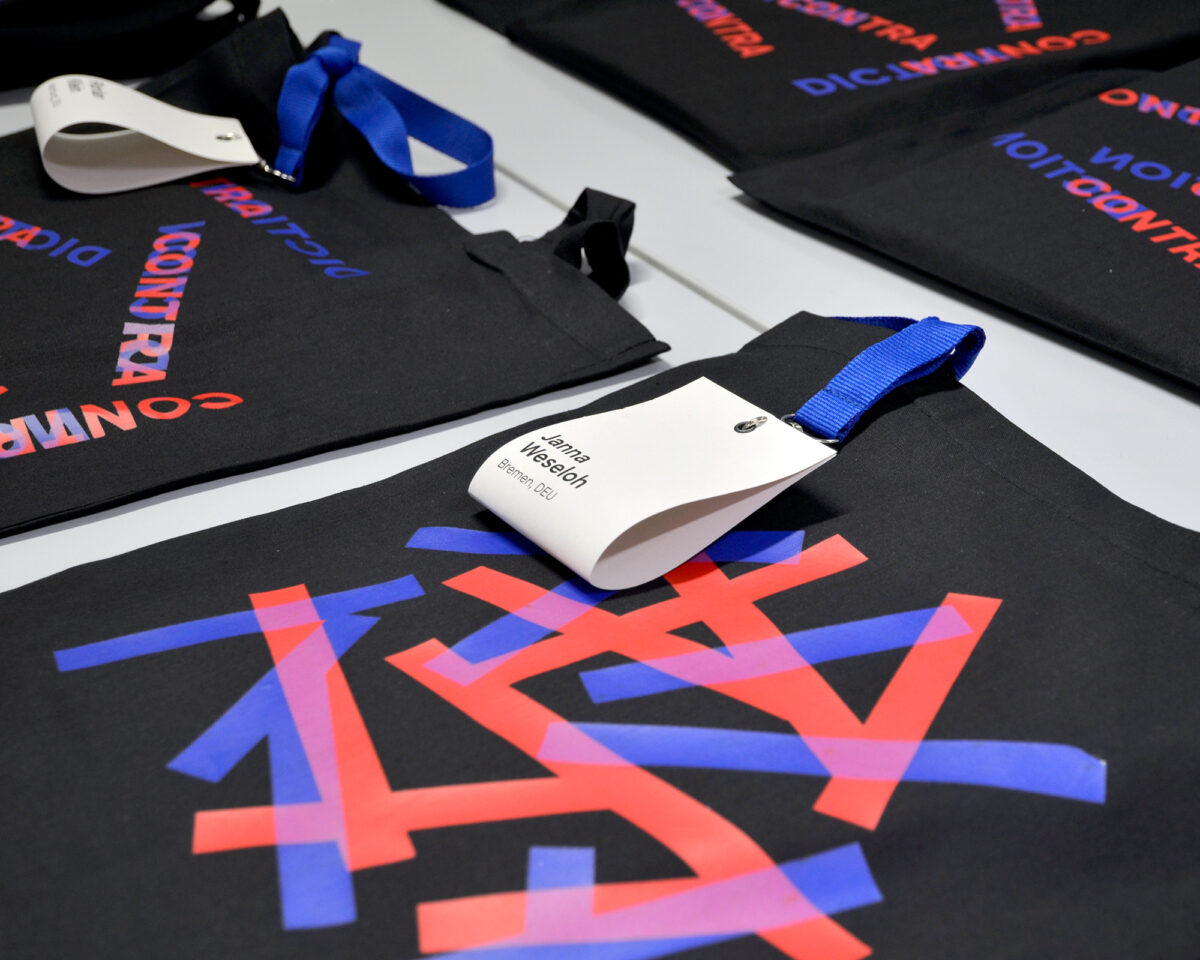
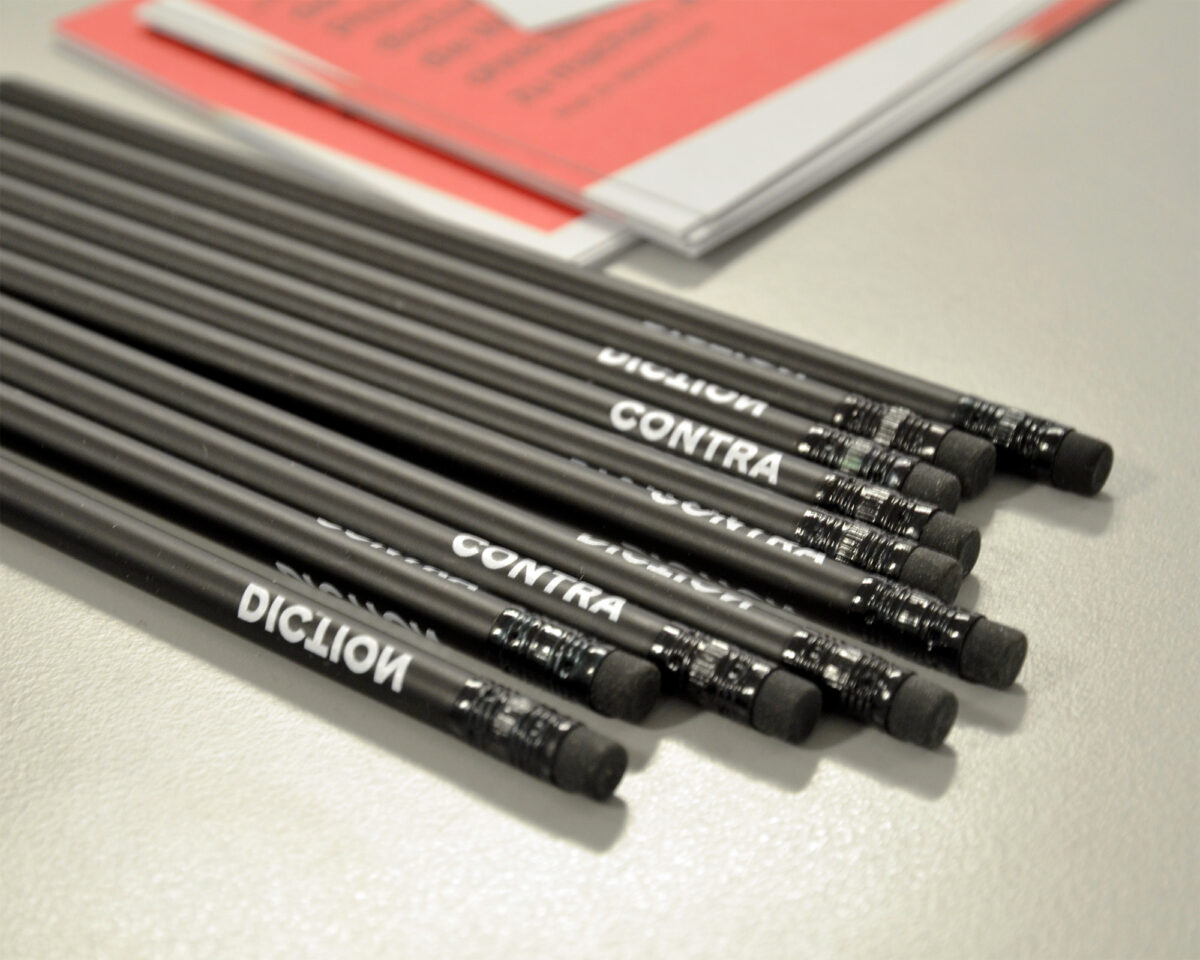
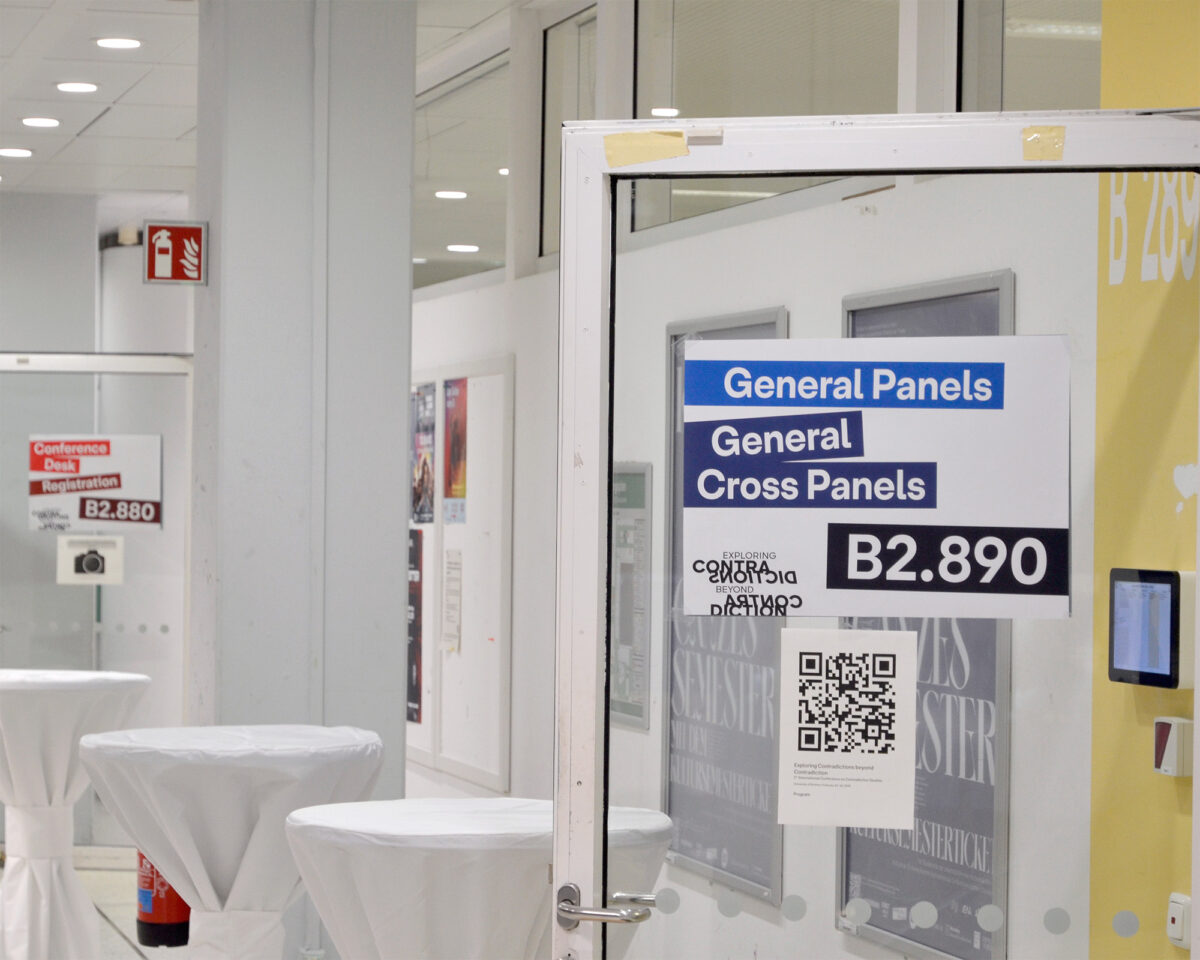
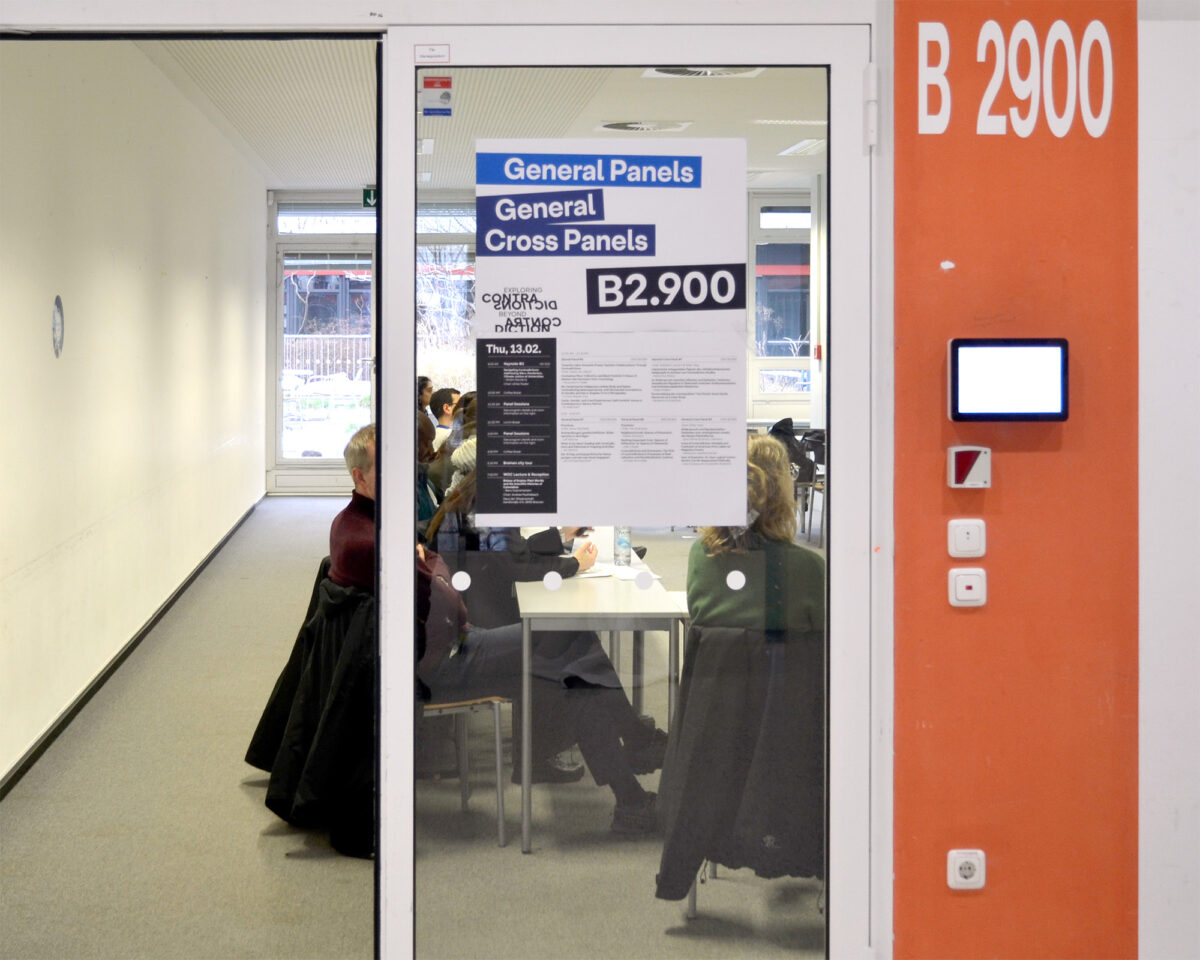
The conference featured a series of engaging keynote lectures, panels, and discussions, aimed at exploring the many facets of contradiction/s across disciplines. We were delighted to have a distinguished group of scholars and researchers join us for this groundbreaking exchange. The diverse perspectives and lively debates have undoubtedly enriched our understanding of contradictions and opened new avenues for future research.
We extend our heartfelt gratitude to all participants, especially to our Fellows and Mercator Fellows, for their invaluable contributions that made this conference a resounding success.
For those who were unable to attend or wish to revisit the discussions the video recordings of the keynote lectures can be accessed here.
We look forward to continuing this important dialogue and fostering further collaborations in the field of Contradiction Studies.
The conference is organized by the DFG Research Training Group 2686: Contradiction Studies – Constellations, Heuristics, and Concepts of the Contradictory (DFG RTG 2686 2023) as part of the Collaborative Research Platform Worlds of Contradiction (WOC) at the University of Bremen and hosted by the speakers of the RTG 2686, Prof. Michi Knecht and Prof. Ingo H. Warnke, the scientific coordinator Dr. Christian Bär, the coordinating team, our student assistents, as well as the entire faculty of the Research Training Group.
Contact: ecbc2025@uni-bremen.de
+49 (0) 157 552 176 99 (available February 11–14, 2025)
References
- DFG RTG 2686. 2023. Initial Application. Contradiction Studies – Constellations, Heuristics, and Concepts of the Contradictory. Reading Version. Research Training Group Contradiction Studies (GRK2686) Working Paper Series #1_en. Bremen: U Bremen.
- Febel, Gisela, Kerstin Knopf and Martin Nonhoff, eds. 2023. Contradiction Studies – Exploring the Field. Wiesbaden: Springer VS.
- Lienert, Elisabeth, ed. 2019. Poetiken des Widerspruchs in vormoderner Erzählliteratur. Wiesbaden: Springer VS.
- Lossau, Julia, Daniel Schmidt-Brücken and Ingo H. Warnke, eds. 2019. Spaces of Dissention: Towards a New Perspective on Contradiction. Wiesbaden: Springer VS.
- Nintemann, Julia and Cornelia Stroh, eds. 2022. Über Widersprüche sprechen. Linguistische Beiträge zu Contradiction Studies. Wiesbaden: Springer VS.
- Priest, Graham and Koji Tanaka 2022 [1996]. Paraconsistent Logic. Stanford Encyclopedia of Philosophy, edited by Edward N. Zalta. Stanford, CA: https://plato.stanford.edu/entries/logic-paraconsistent/.
- Warnke, Ingo H., Anna-Katharina Hornidge and Susanne Schattenberg, eds. 2021. Kontradiktorische Diskurse und Macht im Widerspruch. Wiesbaden: Springer VS.